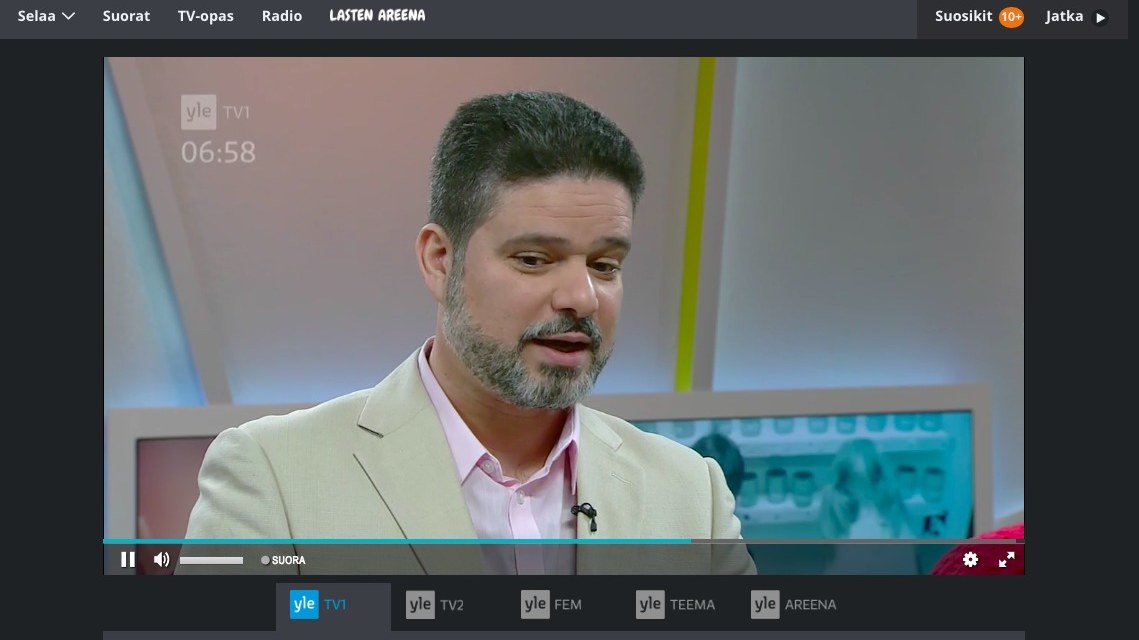helmikuu 2017
2017-02-26 @ 16.08.55 ∈ In English
"The Google Assistant will begin rolling out this week to English users in the U.S., followed by English in Australia, Canada and the United Kingdom, as well as German speakers in Germany. We’ll continue to add more languages over the coming year.
The Google Assistant will automatically come to eligible Android phones running Nougat and Marshmallow with Google Play Services."
![]()
2017-02-25 @ 14.25.37 ∈ Suomeksi
2017-02-21 @ 15.19.38 ∈ Suomeksi
2017-02-20 @ 19.42.09 ∈ In English
2017-02-20 @ 19.03.50 ∈ Suomeksi
2017-02-18 @ 16.31.43 ∈ Lorem ipsum
2017-02-18 @ 9.12.36 ∈ Suomeksi
2017-02-16 @ 14.12.39 ∈ In English
It's now Feb. 16 instead of 14, but I wanted to write some thoughts on love.
Pop culture in America is obsessed with love. It's the core of practically every song in certain genres; it drives many of our movies and books; it's a word that gets thrown about so often that everyone seems to assume there's an agreed-on definition. From my point of view, that cultural definition of love is primarily emotional: "You make me really happy" (or, possibly, "horny") is the primary factor. That's oversimplifying a bit, but "I feel strongly" is key.
I don't think this is a useful definition of love.
I propose that love be defined entirely by action. How you treat someone is the measure of your love for them. It is possible, in fact even common, to love people that you feel nothing for, or even people you feel antipathy towards. And a true long-term relationship built on "love in action" is far more likely to last than one built on "love as emotion".
Emotions are fickle things. I have clinical depression, so I know this a bit better than some, but even for the non-depressed, it's impossible to guarantee that what brings happiness one day will do so the next. Normal boredom, hormonal swings, and environmental pressures can all change our feelings. If your measure of love is how you feel about something, then how much you love that thing is going to swing wildly through your life, even if you remain constant.
People recognize this to some degree, and they try to persevere in "loving" relationships through the low times. When they feel crappy, they hope they'll feel better later and they try to stick it out. But this leads to nagging worries: what about in the meantime? My feelings were what motivated me; now I don't have them. How do I know if they'll return? Maybe I don't love this anymore? Should I move on?
This also provides an easy justification for getting to do what you want: if you "don't love someone anymore", well, the feeling is gone, and who can control feelings? There's nothing for it; best to shake hands and move on. This can make you feel like you're making a reasonable and mature decision to end a relationship when you're making a selfish one designed to seek your own pleasure. (I'm not saying everyone who has said this is selfish, I'm just saying that it's easy to use this rationalization for selfish reasons and still justify it.)
Worse, a love built on feelings is defined by how it affects the person "in love" — not the person (supposedly) loved. If a stalker tells their victim they love them, is that really love? It might be to the stalker, but not to anyone else. But how is it any better if I ignore my spouse, rail at my coworkers, or come to church on Sunday mornings and mouth pleasantries at people I don't bother to know? If I feel good about my life and I like doing those things, am I really a loving person? Basically, do those other people agree that I love them?
Defining love by "how I feel" isn't useful. It is myopic, narcissistic, ineffective. It cares about my internal state instead of how I'm affecting the world. Real love should matter; it should have an effect.
Defining love by action changes all these things.
I have far more control over my actions than my emotions. When my love is defined by my actions, I can commit to loving someone and follow through on it, even when I feel crappy. I don't have to worry that my love has gone away for reasons I don't understand and can't control; I can look at my actions and change them, or not.
When love is defined by action, I have to take responsibility. "I don't love you anymore" means "I choose not to do this anymore". There are scenarios where that is the right decision, but they demand that I accept responsibility for my actions, and recognize that I could have made other choices.
A love based on action conveys care. No one else can measure my feelings, but people can see what I do. When I listen, serve, spend time, or give gifts, I demonstrate love, and others know that they are worthwhile to me.
And best of all, actions are far better at inspiring emotions than emotions are at inspiring action. The Bible tells us to "pray for" your enemies, and every time I've started to take the actions of praying for, talking with, reaching out to those people that make me uncomfortable (or that I actively hate), my heart starts changing. Not all at once; but over time, I begin seeing things from their perspective, I start caring more about their needs, and I find myself emotionally concerned for them, because I've been expressing that concern.
This means that if your commitment in, say, your marriage is to demonstrate love to your partner regardless of how you feel, you're more likely to get both the demonstration and the feeling of love over time than if you go in basing your relationship on how much you love being together and want to spend your lives with each other.
If you haven't encountered it before, this definition of love can feel strange, even perverse. It sounds more like obligation than joy; it sounds as if it diminishes the value of real mountaintop emotional experiences.
But it doesn't! It recognizes that we humans have mountaintops, and we have valleys, and we need sustained, lasting relationships through both those. We need to know others care about us, and we need to care about them, even if our emotions aren't playing along. We need a way to reignite the flame of caring when the fire has gone out. Love defined by action is so much more powerful and more freeing than love defined as emotion.
And it's much more available. Today, you can love someone, simply by choosing to do so. You don't have to care about them first. You don't have to come in feeling anything.
Choose to love.
<3







